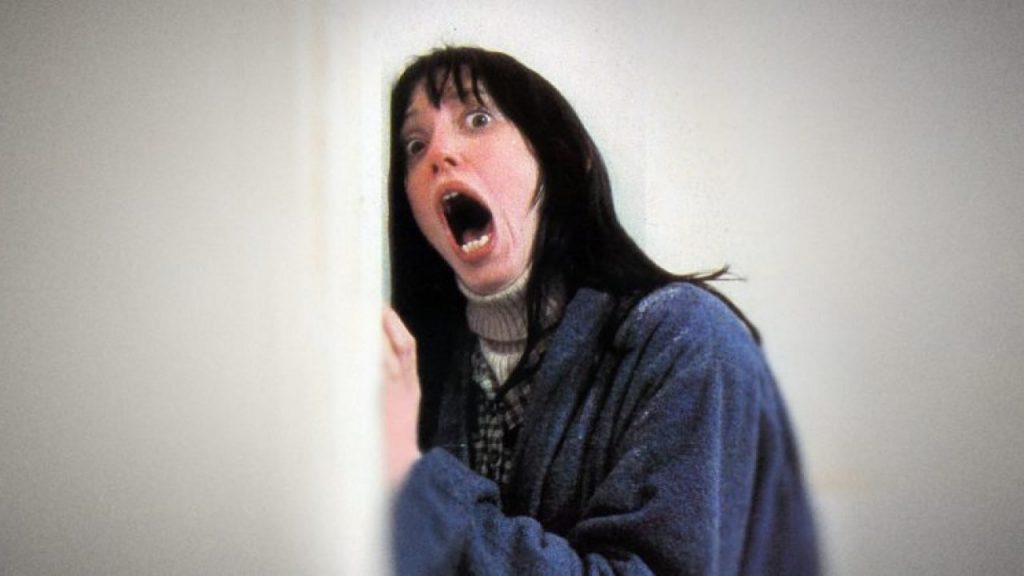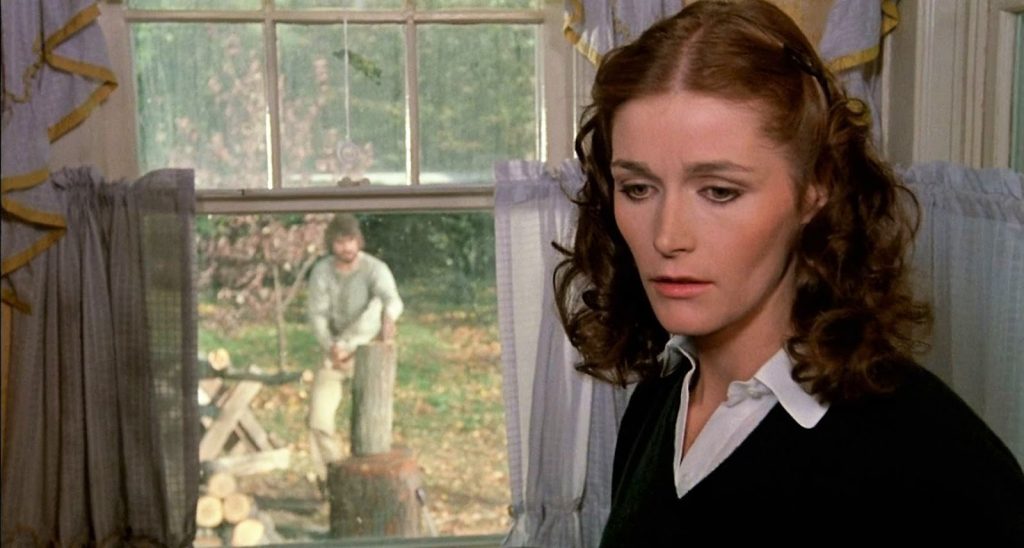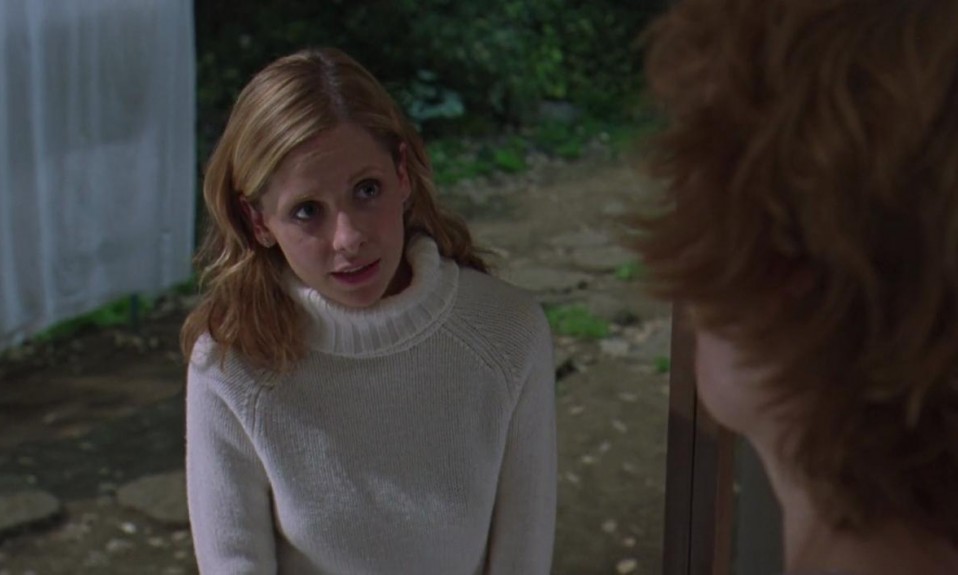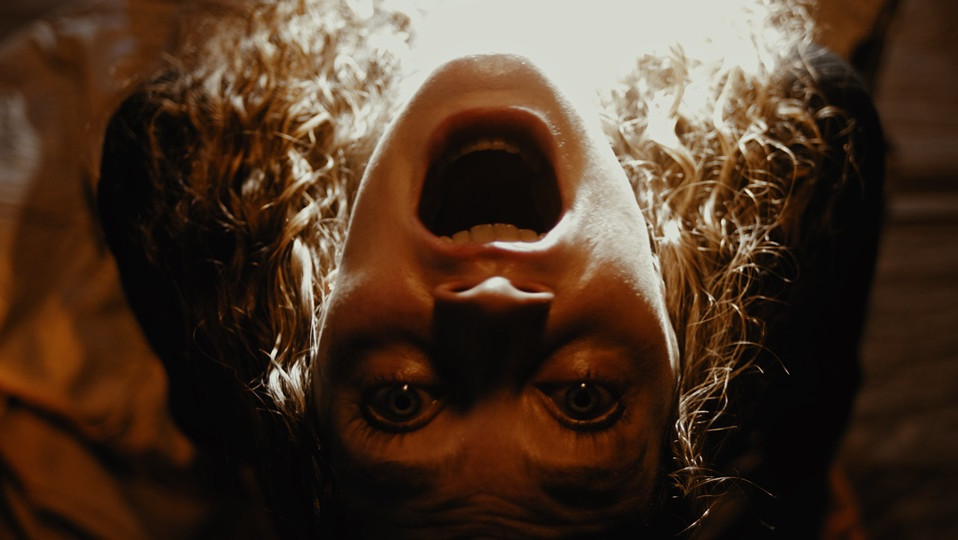Jon Paul Roberts explores how horror films represent the peril of moving house.
A classic car, maybe a people carrier, crawls slowly up a dusty drive. The young family inside crane their necks to look at a large house, one that’s kind of old and a little creepy. The car comes to a stop, and the kids (maybe a dog too) burst out from the backdoors and go running into the house – screaming about which bedrooms they want. The mother and father stand, gazing up at the house, holding each other. ‘This will be a new start,’ one of them says and they both smile.
How many times have you seen some variation on that scenario? I’ve seen it in about 100 horror movies. They’ve likely bought the house at some reduced rate, for sketchy reasons they don’t understand, but, because they’re facing financial hardship, they had no choice. After arriving, the father might become possessed and start chopping wood shirtless, or maybe the mother becomes ‘paranoid’ about all the spooky things that happen when she’s home alone. The youngest kid, the quiet one, might make a new invisible friend or start hearing things in the night. Then comes the demons, or the ghost, the serial killers, or the zombies.
No wonder we find it all so stressful. Often touted as one of the most stressful life events, along with divorce, moving house can be a nightmare. To top it off, when we watch people move on screen, it never really ends well. The family in The Amityville Horror? Bad. The Conjuring? Awful. The Shining? Oh, boy.

Since I’m on the precipice of moving house, I’ve been thinking a lot about what I might do if the place I’ve bought is haunted. I’ve had visions of myself, walking around the apartment in a chic grey turtle neck, being frightened by the slightest noise. Pulling back shower curtains or opening wardrobe doors with a quickness to see if there’s a demon hiding inside. Or waking up late at night and scoping out some disturbance in the next room while wearing delicate silk pyjamas. I’m thinking of myself as Sarah Michelle Geller in The Grudge, obviously.
In actuality, it’s unlikely my new place is haunted. It’s in a building that was only built around seven years ago, and, to my knowledge, it isn’t on any ancient burial grounds. Yet, I could be wrong. I mean, how often do the families in those films insist the place isn’t haunted before they admit it to themselves? Anyway, the idea of a ‘haunted house’ has been around for centuries and was imbedded within gothic literature. Over time, that has expanded into the mainstream as houses themselves became, as Edwin Heathcote wrote in the Financial Times, ‘the embodiment of evil.’ He goes on to write that the success of this type of horror comes from the subversion of the home as somewhere safe. ‘Home should be a place of comfort and refuge,’ he writes, ‘its violation is a kind of mental rape.’ So, in the decades since those gothic stories – in which haunted houses were distant, creaky, places that were eerie and decrepit – we’ve moved towards the suburbs, the everyday home, the new apartment I’m moving into, as a place of terror. In short, you can’t spot a haunted gaff anymore. The ghosts could be anywhere, and they’re just as likely to be in that abandoned Victorian house around the corner as they are to be in a new build semi-detached on the latest development.

It seems these horror films, which throw families into the midst of a ghostly nightmare after moving house, play on our fear of change? The idea of ghosts or demons might all be fantasy. Still, they represent the genuine fear of homeownership and the concerns about responsibility, permanence, repossession, house insurance, solicitor fees, burglary, choosing the wrong colour for the bathroom wall, and burst pipes that come after a purchase. The idea of owning something like a house or a flat is scary, and so it makes sense that horror films play on that fear by showing us the horrendous things that happen to these families once they’ve moved in. After all, the genre is famous for tapping into our innermost fears and exploiting them in various ways.
At the end of these films, the ghost is dispelled or the demon banished back into the depths of hell and, eventually, through some exorcism of the soul, I’ll send my doubts and fears packing too. I will grow into owning my own place, and it will all pass. Though, I’ll still have to keep an eye on the neighbours because, well, don’t get me started on Rosemary’s Baby…
Also Read: How Film Changed Me: On ‘I May Destroy You’












